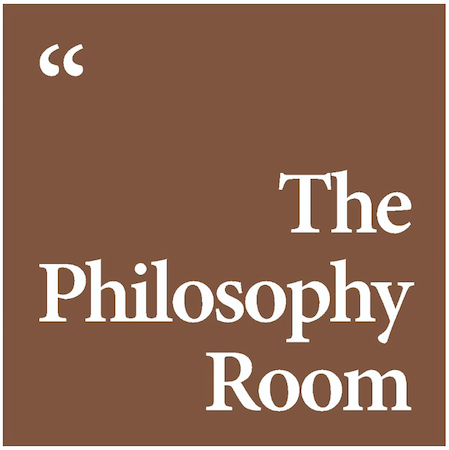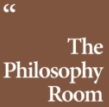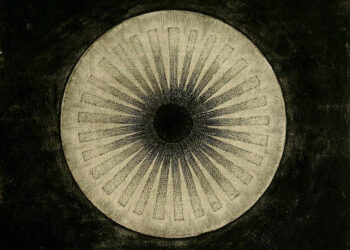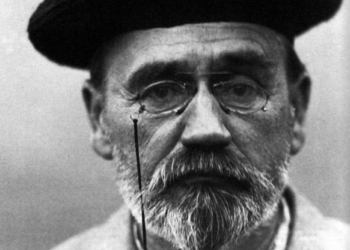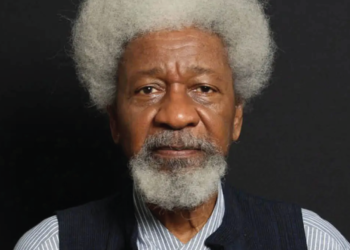Art of War by Machiavelli
1) About the Author
Niccolò Machiavelli, born in Florence, Italy, in 1469, was a prominent Renaissance political philosopher, diplomat, historian, and writer. His most famous work, “The Art of War,” reflects his deep understanding of politics and strategy. Machiavelli served in various government positions, including as a diplomat for the Republic of Florence. Despite his contributions to political thought, he faced political turmoil and was even imprisoned for a brief period. Machiavelli’s experiences and observations during turbulent times greatly influenced his writings, making him a controversial figure in his era.
Machiavelli’s insights into the complexities of power and governance were not limited to theoretical concepts but were grounded in the harsh realities of his time. His pragmatic approach to politics and war is evident in “The Art of War,” where he offers strategic advice and astute observations on leadership, conflict, and statecraft. This work showcases Machiavelli’s analytical mind and his commitment to understanding the dynamics of power, making him a key figure in the development of political philosophy.
In addition to “The Art of War,” Machiavelli is renowned for his other influential work, “The Prince,” which explores similar themes of political leadership and pragmatism. His writings continue to be studied and debated, and his impact on political theory remains profound. Understanding the author’s background and historical context provides valuable insights into the motivations behind “The Art of War” and enhances our appreciation of Machiavelli’s enduring contributions to political philosophy.
2) Main Themes
Strategic Realism in Politics:
One of the central themes in “The Art of War” by Machiavelli is the concept of strategic realism in politics. Machiavelli departs from traditional idealistic views of governance and instead presents a pragmatic understanding of political power. He emphasises the importance of practicality over moral considerations, arguing that rulers must be willing to employ cunning and strategic manipulation to achieve their goals. This departure from moral absolutism was a groundbreaking aspect of Machiavelli’s thought. Unlike earlier political philosophers who often idealised virtuous rule, Machiavelli’s contribution lies in his recognition of the harsh realities of political life.
Machiavelli’s strategic realism is evident in his advice to rulers regarding the use of force, deception, and adaptability. For instance, he argues that a ruler should be both a lion and a fox—combining strength with cleverness. This strategic approach to politics has been both criticised and appreciated throughout history. While some view Machiavelli as an advocate for ruthless power, others see his work as a pragmatic guide to navigating the complexities of governance. Comparisons can be drawn with thinkers like Thomas Hobbes, who also explored the role of power and self-interest in political structures.
The Nature of War and Conflict:
Another prominent theme in “The Art of War” is Machiavelli’s exploration of the nature of war and conflict. He delves into the strategic considerations of warfare, offering insights into the factors that contribute to success on the battlefield. Machiavelli’s original contribution lies in his focus on the practical aspects of war, advocating for a comprehensive understanding of military strategy and the importance of adapting to changing circumstances. Unlike some earlier theorists who romanticised war or portrayed it as an extension of policy, Machiavelli provides a more nuanced and realistic view.
Machiavelli’s examination of war can be compared with the ideas of other military strategists and philosophers, such as Sun Tzu. While both acknowledge the significance of strategy, Machiavelli’s emphasis on the ruthless and dynamic nature of conflict sets him apart. Additionally, his insights into the role of fortifications, logistics, and the unpredictability of war contribute to a comprehensive understanding of military tactics. Machiavelli’s pragmatic approach to warfare has influenced subsequent military thinkers and leaders, shaping discussions on the strategic aspects of conflict.
Leadership and Virtù:
A key theme in “The Art of War” is Machiavelli’s exploration of leadership qualities and the concept of virtù. Machiavelli introduces the idea of virtù as a combination of skill, prowess, and adaptability that a ruler must possess to navigate the complexities of politics successfully. This concept represents a departure from traditional notions of virtue, as Machiavelli’s virtù is not solely based on moral goodness but on the effectiveness of a leader in achieving their objectives. This original contribution to political thought challenges conventional ideas about the nature of leadership.
Machiavelli’s emphasis on leadership qualities has parallels with discussions on effective leadership in various fields. The concept of virtù can be compared with contemporary theories on leadership that highlight the importance of adaptability, decisiveness, and strategic thinking. Additionally, Machiavelli’s focus on the pragmatic aspects of leadership distinguishes his approach from more idealistic perspectives. The contrast with thinkers like Plato, who emphasised the philosopher-king guided by moral principles, underscores the innovative nature of Machiavelli’s ideas on leadership and virtù.
Deception and Manipulation:
A pervasive theme in “The Art of War” is Machiavelli’s exploration of deception and manipulation as integral tools in political strategy. Machiavelli contends that rulers must be adept at the art of deceit, using cunning and craftiness when necessary to achieve their objectives. This emphasis on strategic manipulation represents a departure from conventional ethical norms, as Machiavelli argues that the ends justify the means in the pursuit and maintenance of power. His original contribution lies in the systematic examination of these tactics and their application in political scenarios.
Machiavelli’s ideas on deception can be compared with other philosophical perspectives that address the ethics of political conduct. Contrasting his approach with thinkers like Immanuel Kant, who advocated for moral principles in politics, highlights the divergence in their views on the role of deception. Machiavelli’s realist stance acknowledges the inherent duplicity in political manoeuvring, sparking debates on the ethical boundaries of political conduct. The enduring relevance of his insights is evident in discussions about the ethical considerations of deception in contemporary political discourse.
The Fragility of Power:
“The Art of War” also delves into the theme of the fragility of power. Machiavelli argues that the maintenance of power is a delicate balance, requiring constant vigilance and adaptability. Rulers, according to Machiavelli, must be aware of the precarious nature of their positions and take proactive measures to secure their authority. His original contribution lies in the recognition of power dynamics as fluid and subject to external influences. This contrasts with more optimistic views of stability in governance presented by earlier political philosophers.
Comparisons can be drawn between Machiavelli’s insights on power fragility and the ideas of later thinkers like Friedrich Nietzsche, who explored the concept of eternal recurrence. Both thinkers recognise the impermanence of power and the cyclical nature of rise and fall in political structures. Machiavelli’s emphasis on the vulnerability of rulership encourages a realistic assessment of the challenges leaders face in maintaining stability. Understanding the fragility of power is crucial for leaders navigating the complexities of political landscapes, and Machiavelli’s contributions in this regard continue to shape discussions on political resilience and longevity.
3) Its Publication and Reception
“The Art of War” by Machiavelli has a storied history in terms of its publication and reception. Originally composed in 1521, it was not published during Machiavelli’s lifetime. After his death in 1527, the manuscript circulated among his acquaintances, but it wasn’t until 1529 that the work was officially published. The delay in publication can be attributed to the controversial nature of Machiavelli’s ideas, which challenged prevailing moral and political norms.
The reception of “The Art of War” was mixed and often contentious. The work faced criticism for its departure from conventional ethical standards and its pragmatic approach to politics. Many contemporaries, influenced by humanist ideals, found Machiavelli’s realist perspective unsettling and considered his counsel on deception and manipulation morally objectionable. This initial reception underscores the radical nature of Machiavelli’s ideas and their divergence from the political and moral philosophies of his time.
Over time, however, “The Art of War” gained recognition for its practical insights into politics and warfare. Military leaders and statesmen began to appreciate Machiavelli’s emphasis on strategic realism, and the work found its way into discussions on statecraft and leadership. The shifting political landscape of subsequent centuries further contributed to the evolving reception of Machiavelli’s ideas.
In the Enlightenment era, thinkers such as Montesquieu and Rousseau engaged with Machiavelli’s works, interpreting them in the context of their own political theories. The Enlightenment’s emphasis on reason and individual rights sometimes clashed with Machiavelli’s more pragmatic and power-centric approach. However, the Enlightenment also facilitated a nuanced reevaluation of Machiavelli’s contributions, recognising the depth of his insights into political dynamics.
The 19th and 20th centuries witnessed a renewed interest in Machiavelli’s works, with scholars and political theorists analysing his ideas in the context of their own times. Machiavelli’s influence is particularly evident in discussions on realpolitik and the complexities of international relations. The work continues to be a subject of study in political science and philosophy, with scholars appreciating its enduring relevance and its impact on the understanding of power and governance.
While Machiavelli’s “The Art of War” initially faced criticism for its departure from traditional moral and political norms, its delayed publication allowed for a more nuanced reception over time. The work’s enduring legacy lies in its contribution to the evolution of political thought and its continued relevance in discussions on leadership, strategy, and the realities of political power.
4) War after Machiavelli
“The Art of War” by Machiavelli has left an indelible mark on the discourse surrounding warfare and statecraft, influencing subsequent generations of military thinkers and strategists. The post-Machiavellian era witnessed a profound impact on the conduct and understanding of war, with his ideas contributing to the evolution of military thought.
Machiavelli’s emphasis on the pragmatic aspects of warfare, including strategic deception and adaptability, has resonated through the centuries. Military leaders, particularly during times of conflict, have drawn upon Machiavellian principles to inform their decision-making. For example, in the 19th century, military strategists like Carl von Clausewitz, while differing in some respects, incorporated aspects of Machiavellian realism into their theories on war. Clausewitz’s famous assertion that “war is the continuation of politics by other means” aligns with Machiavelli’s recognition of the inseparable link between politics and warfare.
The 20th century, marked by two world wars and the Cold War, further saw the application of Machiavellian principles in the realm of international relations. Realist approaches to geopolitics, exemplified by figures like Hans Morgenthau, echoed Machiavelli’s focus on power dynamics and the pursuit of national interest. Machiavelli’s influence is evident in the strategic considerations of states during times of conflict, where the balance of power and the pragmatic pursuit of goals often take precedence over idealistic notions.
Moreover, the rise of unconventional warfare and asymmetrical conflicts in the contemporary era has prompted a revisiting of Machiavellian strategies. Military theorists and practitioners engage with his insights on adaptability and the dynamic nature of conflict, recognising their applicability in modern scenarios. The complexities of 21st-century warfare, including cyber warfare and hybrid threats, underscore the enduring relevance of Machiavelli’s emphasis on flexibility and strategic acumen.
While Machiavelli’s work primarily focused on the state level, his ideas have also permeated discussions on insurgency and guerrilla warfare. The understanding of irregular warfare, insurgency dynamics, and counterinsurgency strategies has been influenced by Machiavellian concepts, particularly the recognition that unconventional methods may be necessary to achieve strategic objectives.
5) Its Legacy
The legacy of “The Art of War” by Machiavelli is profound and enduring, leaving an indelible mark on the realms of political philosophy, military strategy, and statecraft. Machiavelli’s work, although controversial in its time, has secured a lasting legacy that transcends historical and cultural boundaries.
One key aspect of Machiavelli’s legacy is his contribution to a more realistic understanding of politics and governance. By challenging idealistic notions of virtuous rule, Machiavelli introduced a pragmatic approach that acknowledged the complexities of power. This shift in perspective has influenced subsequent political thinkers, shaping discussions on the practical realities of leadership and the pursuit of political objectives.
“The Art of War” has also left an enduring impact on military strategy. Machiavelli’s insights into the dynamic nature of conflict, the importance of adaptability, and the role of deception have become foundational principles in the study of warfare. Military leaders across centuries have drawn upon Machiavellian concepts to inform their decision-making, particularly during times of war. The work’s emphasis on the inseparable link between politics and warfare has become a fundamental aspect of strategic thought.
Furthermore, Machiavelli’s ideas have permeated the field of international relations. The realist school of thought, which acknowledges the centrality of power and national interest in global politics, owes much to Machiavelli’s influence. His emphasis on the pursuit of state interests and the pragmatic assessment of power dynamics continues to shape how nations engage with each other on the world stage.
The legacy of “The Art of War” is also evident in the ongoing discussions on leadership and governance. Machiavelli’s concept of virtù, which combines skill, prowess, and adaptability in leadership, has become a touchstone for understanding effective political leadership. The work has prompted reflections on the ethical boundaries of political conduct and the balance between moral principles and pragmatic decision-making.
Moreover, Machiavelli’s legacy extends beyond the written word, manifesting in the application of his ideas in various historical and contemporary contexts. Leaders facing complex political situations often find resonance in Machiavelli’s counsel, seeking inspiration from his emphasis on practicality and strategic acumen.
6) Some Quotes
“The more sand has escaped from the hourglass of our life, the clearer we should see through it.” – Machiavelli
“The first method for estimating the intelligence of a ruler is to look at the men he has around him.” – Machiavelli
“It is better to be impetuous than cautious, because fortune is a woman and if she is to be submissive it is necessary to beat and coerce her.” – Machiavelli
“Men are so simple and so much inclined to obey immediate needs that a deceiver will never lack victims for his deceptions.” – Machiavelli
“The great majority of mankind are satisfied with appearances, as though they were realities, and are often more influenced by the things that seem than by those that are.” – Machiavelli
